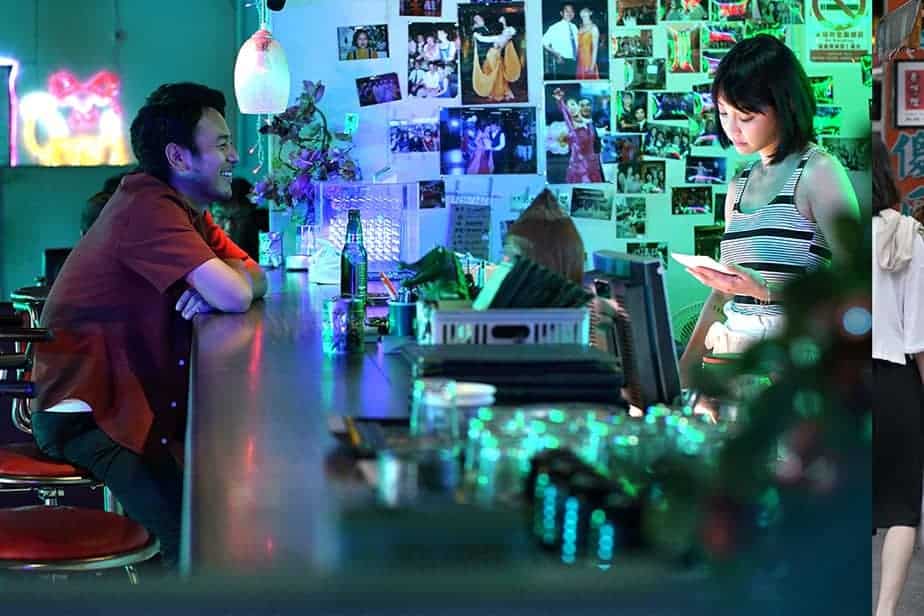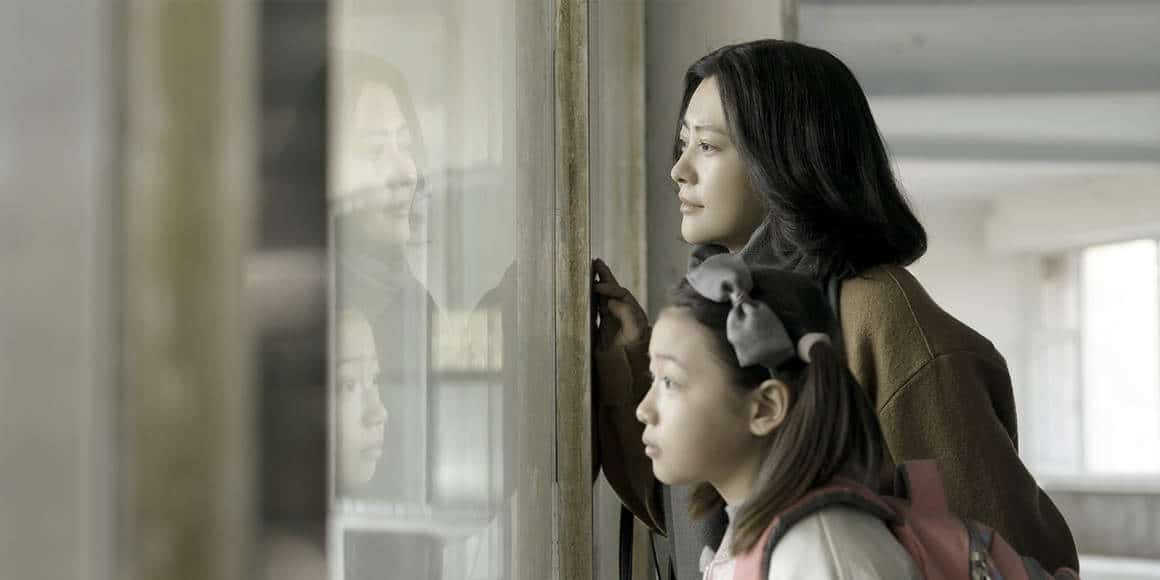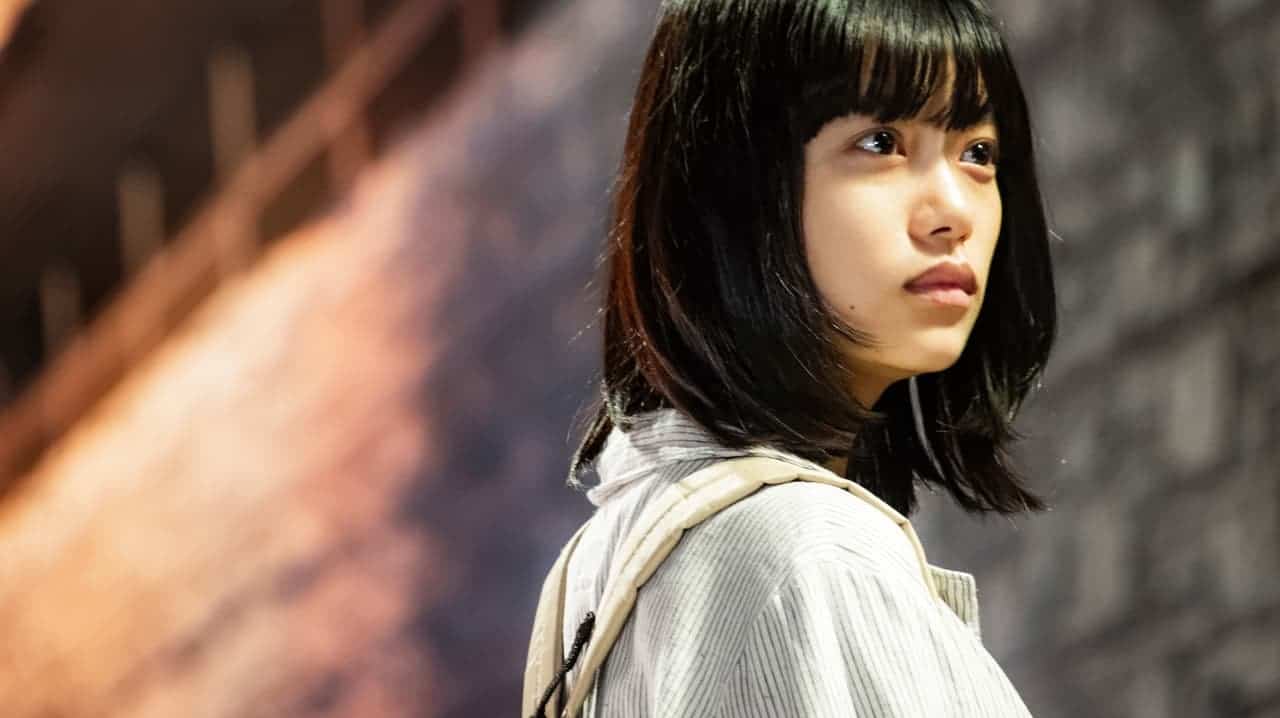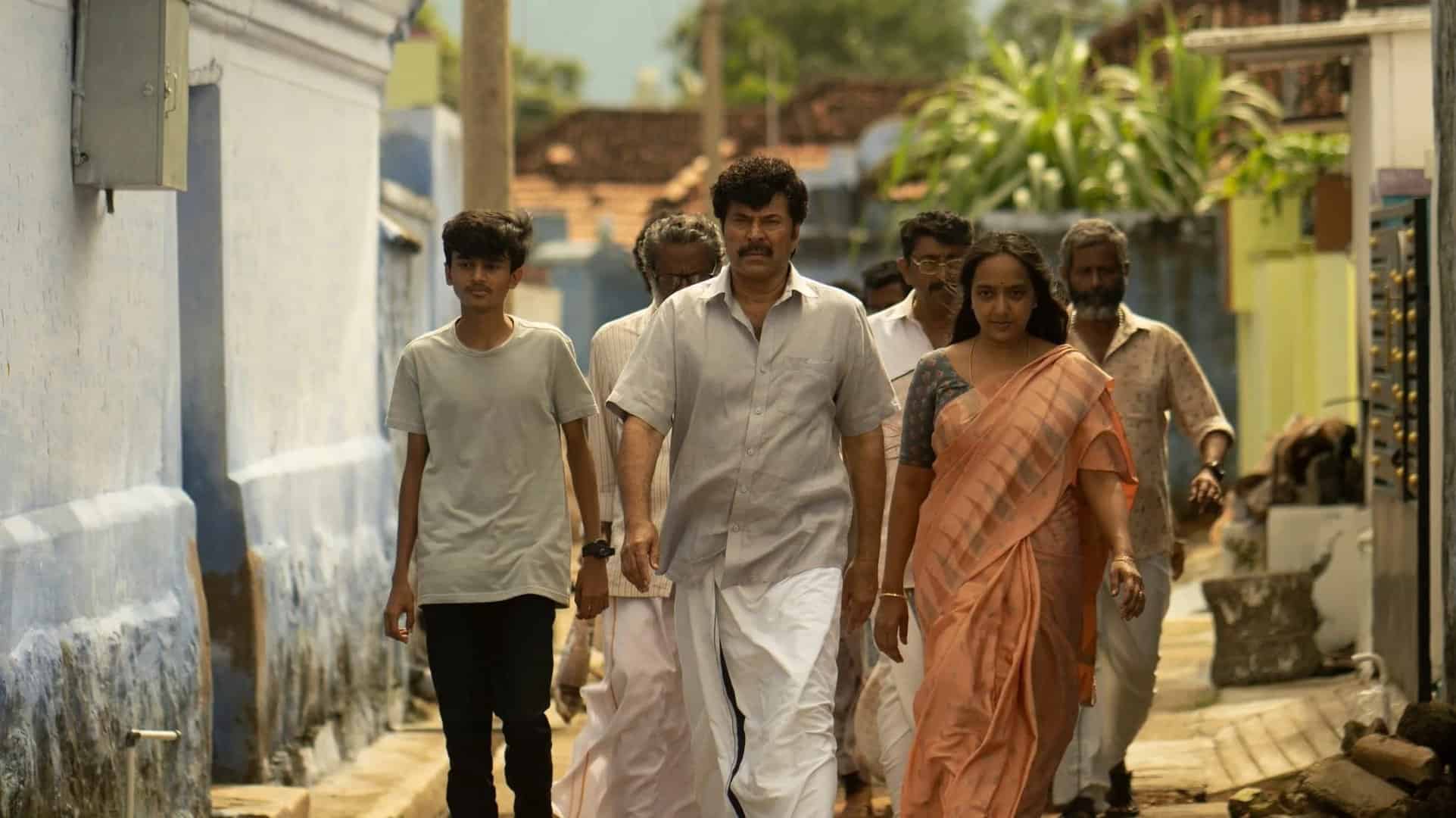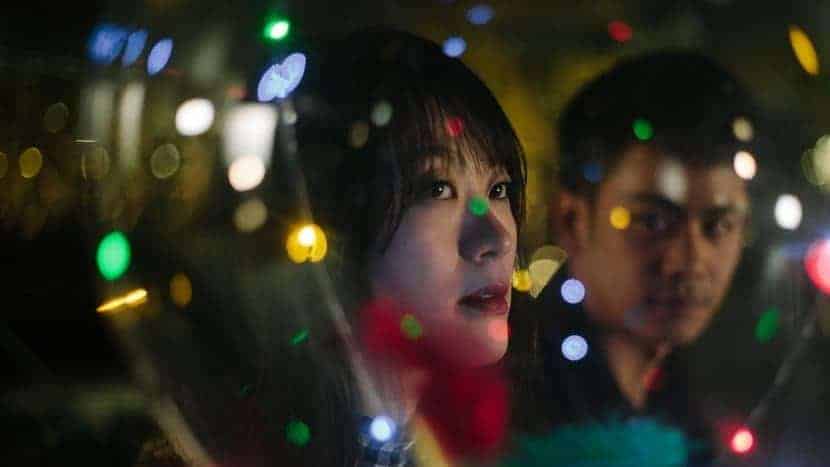To most cinephiles, the name Yoshihiro Hanno is still often associated with film music. Apart from composing the score for his own movies, such as “Ugly” and “A Woman Wavering in the Rain” Hanno has created the music for Jia Zhangke's “Mountains May Depart” and Isao Yukisada's “Five Minutes to Tomorrow”, to name just a few examples. In his new directorial effort “Paradise Next”, he tells the story of three people feeling lost because of guilt, regret and a sense of spiritual loneliness, utilizing the conventions of the road movie for them to explore these issues as well as their connections to each other. The result has quite a few aesthetic merits, but fails to convince with its uneven, at times indecisive storyline.
“Paradise Next” is screening at Japan-Filmfest Hamburg

For a year now Shima (Etsushi Toyokawa) has sought refuge with a crew of gangsters in Taiwan after the death of a woman he blames himself for. However, his daily routine of shacking down shop owners and various other chores is interrupted by the appearance of his former boss in Japan who demands Shima to kill Makino (Satoshi Tsumabuki), a man Shima already knows since he has been following (and pestering) him for quite some time now.
Instead of doing what is asked of him, Shima and Makino, both following orders of the Taiwanese gangsters, engage on an easy assignment in the countryside. At a rest stop they meet Xiao En (Nikki Hsieh), a friendly, lively bartender who looks very similar to the woman, whose death is the cause of Shima's brooding silence and guilt-ridden nightmares. As the three of them get close to each other, eventually moving in to Xiao's home, Makino and Shima face the sins of their past and how their fates are connected to each other.
Undoubtedly, “Paradise Next” is quite a beautiful movie. Supported by the theme song, composed by Hanno's colleague Ryuichi Sakamoto, the journey of the three main characters, especially the latter part which takes place close to the ocean, is beautifully shot. Besides being aesthetically well-made, these images also seem to highlight the kind of spiritual journey the characters, in particular Shima, are going through. Since the reason for their behavior – Shima's brooding silence and Makino's talkative nature, at times bordering on being hyperactive – is unknown, Hanno, along with his DOP Naoya Ikeda explore the kind of change they go through, how the sheer idea of going somewhere, of moving in one direction leads to some kind of shift within them.
On the other hand, Hanno's films emphasize the emotional shift within his characters, using the change from the blue, populated urban setting of Taipei to the idyllic Hualien region. Additionally, Xiao's friendly and bold nature supports the idea of something changing within the characters, but also the kind of painful revelation which is to come for them in the end.
Essentially, there are many solid and well-made aspects to be found in “Paradise Next”, but sadly, it does not make for an engaging narrative. Over the course of its running time the indecisive, even fragmented flow of the story, along with the male characters being essentially gangster stereotypes, fails to convince and makes the revelation rather predictable. Also, many scenes feel unnecessary or could have been explored more, such as the men's connection with Xiao, whose appearance is a much welcome distraction to the film, making Nikki Nsieh's performance quite noteworthy.
In conclusion, “Paradise Next” is a solid entry in the road movie-genre. While its aesthetic qualities, especially the cinematography and the music, are quite well-made, the narrative and handling of the character fail to convince as its meandering, indecisive and predictable nature keep the story from being above average.


